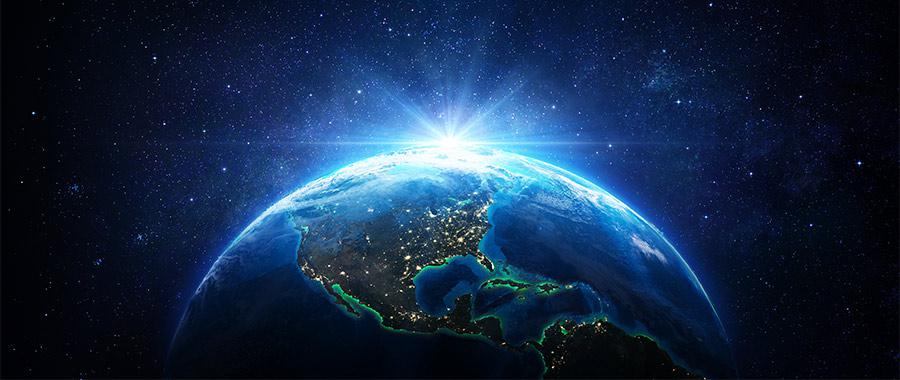Throughout the annals of human history, the concept of prophetic guidance has held a paramount position in the hearts and minds of myriad cultures. Specifically, the Bahá’í Faith posits a compelling premise: that all peoples, irrespective of geographical or cultural delineations, have been endowed with a prophet or divine messenger. This assertion beckons further exploration into its theological foundations, implications, and resonance within contemporary society.
At the core of this teaching lies the belief in the Manifestations of God, a pivotal doctrine within the Bahá’í Faith. These Manifestations, including figures such as Moses, Jesus, Muhammad, the Báb, and Bahá’u’lláh himself, are regarded as intermediaries between the Divine and humanity. Their teachings address the spiritual and social exigencies of the eras in which they appeared, offering guidance tailored to the distinctive needs of their contemporaneous societies. Thus, the Bahá’í assertion that all peoples possess a prophet encapsulates not merely an assertion of belief, but rather a comprehensive framework through which to understand human spiritual evolution.
Discerning why this teaching captivates thinkers and believers alike necessitates an examination of the inherent commonalities amongst various religious systems. Most major world religions articulate a narrative of revelation, wherein a chosen individual receives divine insights and disseminates them to their community. The universality of this motif suggests an intrinsic human yearning for connection with the divine. By asserting that every culture may receive prophetic guidance, the Bahá’í Faith fosters an inclusivity that resonates with this yearning, dismantling barriers erected by exclusivist religious doctrines.
Moreover, the notion that every people receives a prophet accentuates the evolutionary character of religion. The Bahá’í perspective espouses that revelation is not a singular, static event but rather a progressive and cumulative process. In this view, each Manifestation brings forth teachings that build upon the teachings of previous prophets, engendering a dynamic interplay of spiritual truths across epochs. The implications of this doctrine underscore a profound understanding of humanity’s collective path toward spiritual maturity. Rather than seeing religious traditions as antagonistic or insular, the Bahá’í Faith invites a recognition of the interconnectedness of all religions as manifestations of one underlying truth.
This concept of progressive revelation also dovetails with the Bahá’í teachings on unity. The principles of oneness of humanity and the equality of all peoples underscore the necessity of recognizing diverse religious traditions as complementary rather than contradictory. This perspective has profound social implications, particularly in an era marked by increasing globalization and interfaith dialogue. Through the lens of Bahá’í teachings, each culture’s scriptures can be seen as unique expressions of the same divine intent, thereby fostering mutual respect and understanding among disparate groups.
Addressing the human fascination with prophets requires delving into the psychological and sociological dimensions of religious experience. Individuals often gravitate toward charismatic figures who embody transcendent messages. Prophets, enshrined as sacred conduits of knowledge, offer hope and direction amidst the uncertainties of life. They epitomize the search for truth and validation of moral principles, serving as beacons in tumultuous times. This desire for connection with a prophet is borne out of an inherent need for guidance, affirmation, and reassurance in the human experience. By attributing their aspirations for enlightenment to prophetic voices, cultures articulate their quest for meaning beyond the mundane.
Furthermore, the significance of prophets extends beyond their teachings. Their narratives often encompass profound sacrifice and resilience, serving as archetypal figures who endure persecution for the sake of their divine mission. Such stories resonate deeply as they evoke empathy and inspire individuals to reflect on their ethical duties. The specter of a prophet embodies the intricate dance between faith and adversity—a recurring theme that permeates the human narrative.
Notably, this framework also invites exploration of the contemporary guardians of spiritual insight. In a world rife with turmoil, the necessity for prophetic figures adapts to accommodate modernity. While the classical paradigms of prophecy remain vital, the Bahá’í Faith articulates that the collective consciousness can give rise to new leaders who embody these principles. Scholars, activists, and emerging spiritual leaders today may serve in prophetic capacities, voicing the timeless truths required to navigate contemporary dilemmas. Their roles reflect the ongoing fulfillment of the promise that divine guidance will be available to all humanity.
As time progresses, the inquiry into whether all peoples have a prophet does not merely dwell in the past but reverberates through the present. As societies grapple with existential questions, the essence of prophetic guidance remains urgent. This belief highlights the importance of cultivating a collective consciousness that appreciates religious plurality and acknowledges the manifold expressions of divine truth. Such an ethos encourages global cooperation and fosters an interreligious dialogue that transcends parochial differences.
In summation, the Bahá’í assertion that all peoples have a prophet stands as a testament to both the diversity and unity present within the human experience. The propagation of this belief necessitates recognition of the evolving nature of spiritual teachings and the importance of inclusivity. It speaks to the heart of the human condition—our perpetual quest for direction, understanding, and belonging. Through the teachings of the Bahá’í Faith, adherents and seekers alike are invited to transcend cultural divides, appreciate the depth of shared human values, and embrace the knowledge that they, too, are within the continuum of divine guidance.
